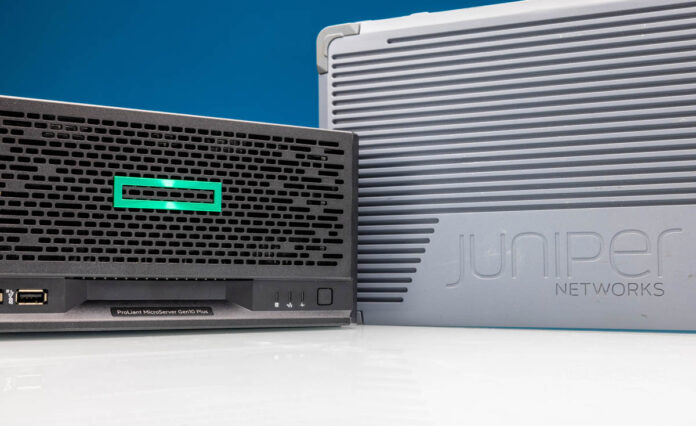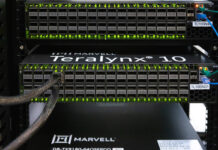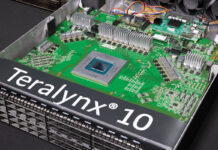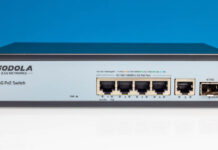We are a bit behind on news this week, but this week we had the HPE – Juniper deal announced. The up to $14B acquisition is certainly a big one in the industry. There are some interesting storylines behind the acquisition that should make folks raise an eyebrow or two.
HPE Announced its Intent to Acquire Juniper
HP, and now HPE, has a networking business that started in a somewhat strange way. Decades ago, HP and Cisco had a big reseller business where HP servers and Cisco networking gear were sold together. To be clear, this was a huge partnership that sold a ton of gear in the 1990s.
Back then, servers were not a business where the high-volume players were making 3-6% margin. HP then started its networking business which quickly tanked its partnership with Cisco. If you have heard of Cisco UCS, be clear that the line was Cisco going after HP’s server business after HP went after its space.
In the meantime, HP bought 3Com in 2009 after it was past its prime. It bought Aruba in 2015. Juniper is different. Juniper has a portfolio that goes well beyond HP(E)’s traditional networking business and into new segments.
There were two big storylines. First, around antitrust review. Second around AI. Neither at first glance make a ton of sense. Antitrust is unlikely to be an issue since there are a lot of players in the space. Cisco is still huge. Some large customers are doing their own networking at scale. The HPE-Juniper combination will be a big player, but it is unlikely to be a dominant force across many markets.
Juniper has largely stalled in recent years. For example, in 2016 it finished the year with $4.99B in revenue. That figure had only grown by just over 6% by the end of 2022 even as companies like Arista saw revenues explode and inflation outpaced revenue growth. Juniper not being able to extract huge premiums over the past few years is a good sign that it is not a gateway to a monopoly. Being part of HPE will not change that.
The other story is that HPE will become big in AI because of the Juniper acquisition. That feels a bit more like pulling a buzzword into an acquisition.
Final Words
Overall, this is a big deal in the industry that is part of almost a quarter century of HP’s networking aspirations. Juniper has some good technology and this is an interesting acquisition. For Juniper, it is a good time for the company to exit and HP/ HPE has a history of buying companies in this lifecycle stage. For Juniper investors and employees, the deal offers a decent premium over the range the company has traded at over the past few years.





HP(E) has, in my mind, come to represent “too large to get out of our own way.” They also may not do a great job of digesting and integrating businesses that they buy. They bought DEC and then threw away some great technology. They bought Compaq and Compaq kind of ate HP instead of the other way around. They bought 3Com and didn’t seem to know what to do with it. They bought Aruba and I’m not sure they’ve got a great game plan there.
Maybe Juniper had stalled a bit, but they seemed to be a company with good products that just needed some more dynamic management to get them cooking again. I tend to doubt that will happen after being acquired by HPE.
Cisco is also one of those companies that buys a ton of other companies and then fails to digest them and make them great. It’s just fractured their product lines and has them going in too many different directions. Cisco is so large and so entrenched that large dollops of inefficiency probably won’t kill them anytime soon, but it sure isn’t helping them either.
Before HPE split from HP, there was a lot of issues with mergers.
After the HP and HPE split, they have been a lot better. There were a lot of questions after the Aruba acquisition what would happen as it started to follow the 3Par gutting but they listened after getting enough push back from customers and decided to back pedal a bit and keep Aruba more independent.
Juniper is much more established in the enterprise routing and carrier spaces which will help HPE along with their IP. The real question is what will end up happening to their campus and wireless offerings as Aruba has a fairly decent story there.
Another pointless merger to juice the stock price, never good for the customer.
Juniper has become stale, and it seems that Aruba is headed in that direction. Compare the AP-610 series with the AP-510 series: In the SMB space, I don’t see the instant-on being a great success either.
Mist was a leader in using ML in the AP space. It will be interesting to see how they merge Juniper campus switches into the lineup, and what they are going to do with Junos?
There is potential in bringing life back to the Aruba wireless line and adding a niche line to compete with someone like Extreme Networks.
Happening too often with these too big to still fully understand what’s happening in their organisation (full of slack, non added value and consumer(business) screwing practices (higher prices, less service)). One of the sins: greed. Result: Eat, Pay, Destroy, Repeat.
Juniper was a zombie company, their products were stale, waves of outsourcing everything, poor product quality and quality control, so many failed and pointless acquisitions didn’t do it any favors either and bad leadership. The leadership couldn’t figure out how to turn it around and steered it towards being acquired, at least it wasn’t bought by broadcom
This makes a lot of sense. I inherited an old HP/Aruba shop and spent the last 4 months getting quotes for updates. One of those was from Juniper, whom I had wonderful experiences with about 10 years back. They have a cool product in Mist and their AI integration, but the price they’re charging is ludicrous with modern network competition… It was disappointing to say the least as they’ve seen to have gone down similar business lines that drove me away from Cisco. We ended up staying with Aruba for smaller upgrades (kicking the can), and even then the new Aruba OS is lacking functionality compared to the legacy HP switches they replaced (In my opinion). The small business side of networking is flourishing, but it feels like Enterprise is dying on the vine.